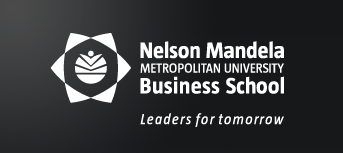Integrated African Leadership (IAL) elective module changes paradigms
Port Elizabeth 20 May 2014 - The NMMU Business School delivered another successful instalment of the popular Integrated African Leadership (IAL) elective module from the 13th to the 16th of May 2014. The module was coordinated by the Business School’s Prof Cecil Arnolds, and featured guest lectures by visiting professors Gilingwe Mayende, Iraj Abedian and Kwandiwe Kondlo.
Prof Mayende holds a PhD from the University of Hull in the UK and Senior Executive Leadership Diploma from Harvard University. He is the former Director-General of the Department of Land Affairs and Deputy Vice-Chancellor of Resources and Operations at the Central University of Technology and is currently a Senior Researcher at the Centre for the Advancement of Non-Racialism and Democracy (CANRAD) at NMMU.
During the lecture series, Prof Mayende contrasted leadership styles from Western and African worldviews, arguing that leaders on the African continent often fail because their leadership style is not attuned to the needs of Africa.
There was a consensus amongst the MBA students that a leadership style informed by Ubuntu principles of communalism, inclusivity, trust, and humanness would be necessary to improve the success of businesses on the African continent, including South Africa.
“I thought this is pie in the sky, but doing case studies that showed how these principles improved businesses convinced me that infusing African wisdoms into our management and leadership styles could render business success”, said one MBA student.
The second visiting lecturer, Dr Iraj Abedian, is a well-known economist and the CEO of Pan-African Holdings (Pty) Ltd. He is the former Chief-Economist of Standard Bank and the current Chairman of the Advisory Board of Transnet. He also served on the Panel of Economic Advisors of Presidents Mbeki and Motlante.

Dr Iraj Abedian Engaging with Students
Dr Abedian addressed the MBA class on the “New scramble for Africa”, stating that the continent harbours many opportunities provided the following priorities are attended to: Policy clarity; regulatory stability; administrative accountability; a credible medium-term infrastructure plan; effective poverty alleviation strategies; an effective human resources development policy; and an effective capital market development plan.
In order to achieve the above-mentioned, Dr Abedian argued the challenges faced by weak governance institutions, extremes of income inequality, a young culture of democratic rule, the rising inter-generational gaps, and the low public sector productivity will need to be met head on.
The third of the three visiting lecturers was Prof Kondlo who is currently a research professor at the University of Johannesburg (UJ) and a visiting professor of the NMMU Business School. He is the former Director of the Centre for Africa Studies at the University of the Free State and the former Executive Director and Chairman of the Democracy and Governance Programme of the HSRC. Further, Kondlo is also visiting professor at Wits School of Public and Development Management and the University of Basel’s Centre for African Studies in Switzerland.
During his lectures, Prof Kondlo focused on the political economy of Africa and asked the question: what role should business leaders on the African continent play in order to assist in the socio-economic development of the African continent. He challenged students, as current and future business leaders, to investigate how the philosophical contributions of several business theorists could improve leadership approaches in businesses on the African continent.
In his session, the students engaged in a wide range of discussions on the importance of agriculture, rural development, capital formation and the eradication of intellectual poverty in solving the socio-economic problems in South Africa and on the African continent.
The students attending the modules found the work covered to be extremely beneficial to their course, and allowed them to expand their leadership horizons from a new prespective.
The IAL’s growth over the past few years is testament to both its quality and usefulness.
“The module had only seven students in 2008 and it has grown to 43 students this year,” commented Professor Arnolds.
“Next year, all our MBA students will be exposed to this programme as part of their Leadership core module”, he added.
The student response to the module was overwhelmingly positive. Deon Barrass, a third year MBA student, described the experience.
“The integrated African leadership course covered a number of topics including western and African leadership paradigms; the contrasts between them and the potential amalgamation of the different styles into a “melting pot” of leadership possibility.
“From a personal point of view, the value of the IAL module was found in interaction between the delegates. Fruitful discussion and heated debate took place and personal paradigms and perceptions were also challenged.
“The course re-ignited in me the determination to be an active contributor to the eradication of intellectual and spiritual poverty in my sphere of influence…and one of the quotes that stood out for me was ‘In Africa, business is: social before profit’”, Barrass concluded.





